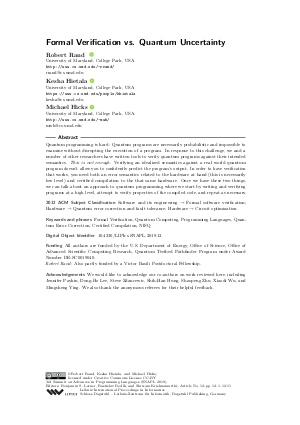LIPIcs.SNAPL.2019.12.pdf
- Filesize: 1.11 MB
- 11 pages

 Creative Commons Attribution 3.0 Unported license
Creative Commons Attribution 3.0 Unported license

























Feedback for Dagstuhl Publishing